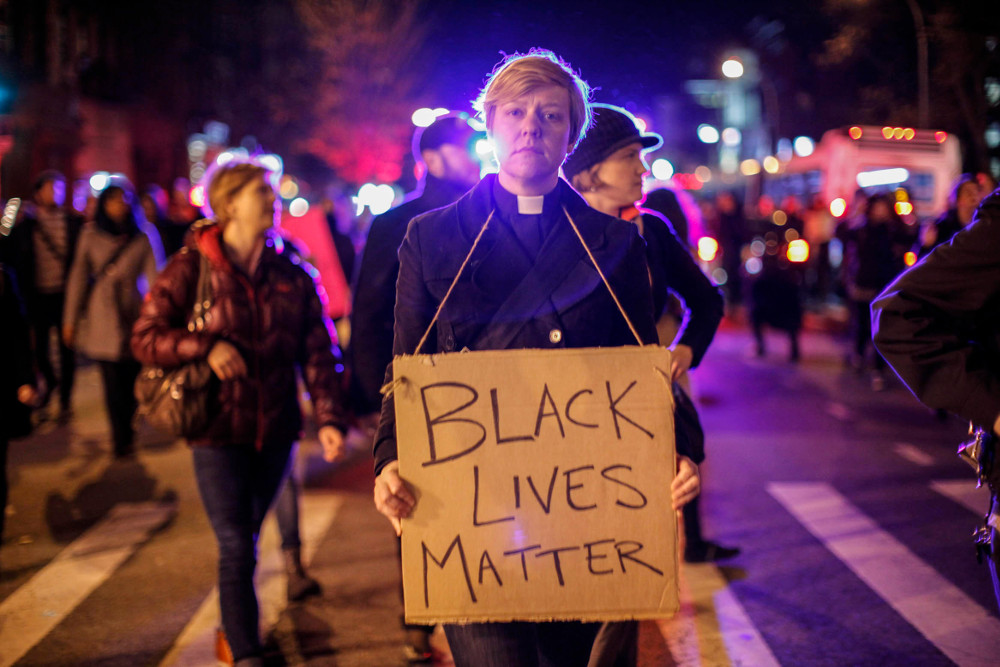Show of force: National Guard troops were called in to secure the police station in Ferguson
It is customary, when disturbances follow a verdict of the kind delivered by the grand jury in Ferguson, Missouri, for those in authority to buttress their appeals for calm with a higher calling: the rule of law. Without it there would be chaos; only through it can there be order. As President Barack Obama said on Monday: “We are a nation based on the rule of law so we need to accept that this was the special jury’s decision to make.”
The trouble is that the United States, for far longer than it has been a “nation of laws”, has been a nation of injustice. And in the absence of basic justice such laws can amount to little more than codified tyranny. When a white cop, Darren Wilson, shoots an unarmed black teenager, Michael Brown, dead and then is not indicted, the contradiction is glaring.
For a world where it is not only legal for people to shoot you dead while you walk down the street, but where they can also do so in the name of the law, is one in which some feel they have nothing to lose.
It is through this chasm, between the official claim to an impartial legal system and the reality of endemic racial injustice, that Wilson made his escape, with the flames of Ferguson in hot pursuit. The grand jury decided there was not even “probable cause” to put him on trial.
The Bureau of Justice reveals that in 2010 US attorneys prosecuted 162 000 federal cases, and grand juries declined to return an indictment in just 11 of them.
Expected sham
The fact that most people nonetheless expected such a verdict – Ferguson was in effect under military occupation for the past week in anticipation of the disturbances that would inevitably occur when Wilson walked – simply illustrates how much of a sham the whole process has been.
An investigation by the Houston Chronicle discovered that a Houston police officer hasn’t been indicted by a grand jury in Harris County, Texas, since 2004; between 2008 and 2012 grand juries in Dallas have indicted just one officer involved in a shooting.
So when it comes to the lethal use of force the police do not just constitute a special category, but also a protected and elevated one. In this “nation of laws” those charged with enforcing the law evidently operate above it, and the judiciary exists not to mediate between the police and the public but to defend them from the public.

Systemic injustice: A protest in New York City against the killing of Michael Brown. (AFP)
And they employ these privileges with great prejudice. According to analysis by ProPublica (an independent, nonprofit newsroom that produces investigative journalism in the public interest), black youths are 21 times more likely than their white counterparts to be killed in police shootings. If white youths were killed by police at the same rate, they would die at a rate of more than one a week.
Together these statistics, along with discrepancies for stop-and-search, sentencing, incarceration and execution, set police power and black life at opposite ends of a value system, which is not only morally indefensible but, ultimately, also socially unsustainable.
The sight of a split screen – with the first black president appealing for calm on one side, and alienated black youth looting and burning on the other – lays bare the limits of what constitutes success in the post- civil-rights era.
Brazenly displayed
Racial disparities are simultaneously so brazenly displayed and denied that the country risks imploding under the burden of its history, even as it trumpets its achievements in overcoming that same burden.
So those who misunderstand the verdict as an isolated incident are doomed to misunderstand everything that flows from it: from the riots, justifications, denials and rationalisations to the calls for calm and expressions of rage. For this was never just about one teenager, one policeman, or one verdict.
Last Sunday a black 12-year-old, Tamir Rice, was shot dead by police in a playground in Cleveland after he went for his fake toy gun. Three days earlier Akai Gurley (28) was shot dead on his stairwell in Brooklyn. A neighbour called the cops, not realising that it was a cop who shot him. The New York police department apologised, admitting the shooting was “accidental”. In St Louis alone two young black men have been shot by police since Brown’s shooting.
Nor is it a morality play in which a decent black child is slain by a malicious white cop. The inherent nature of the injustice was not systematic (Wilson had never discharged his gun before), but systemic. He operates in an organisation where few police are sanctioned for killing black youths and in a culture where armed white men can cite their fear of unarmed black men as a defence. A fear so intense that they have to shoot them. Have to. Since, apparently, no other possible outcome was possible. He “had the most intense aggressive face”, Wilson told the grand jury. “[He] was like a demon, that’s how angry he looked.”
“A system cannot fail those it was never meant to protect,” wrote the black intellectual WEB Du Bois. The verdict has met the low expectation of many African Americans. The law has spoken; justice has yet to make itself heard. – © Guardian News & Media 2014